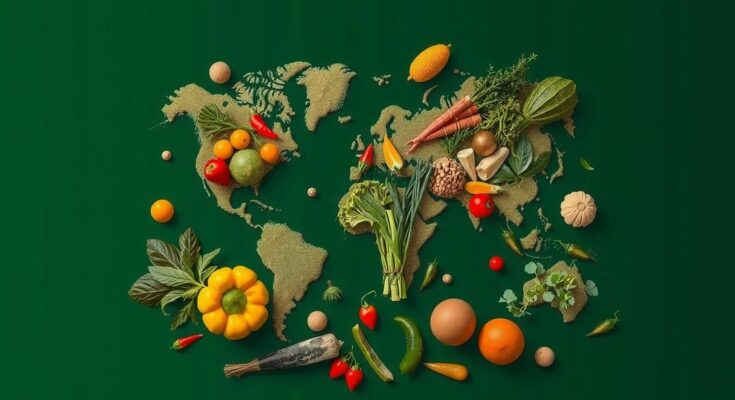The TAPP Coalition has called for a global meat tax at the 2024 U.N. Climate Change Conference (COP29) to combat climate change by reducing animal protein consumption and emissions from agriculture. They criticized countries like the U.S. and Australia for not adopting effective food pricing policies while praising others like Switzerland. Willem Branten urged major players to lead dietary shifts in their commitments, emphasizing the inclusion of these measures in the conference’s final statement.
At the 2024 U.N. Climate Change Conference (COP29) in Baku, Azerbaijan, the TAPP Coalition advocated for the implementation of a tax on meat to combat climate change. This initiative aims to reduce excessive animal protein consumption and lower greenhouse gas emissions from agriculture. The proposal recommends accompanying this tax with subsidies for vegetables to promote healthier dietary choices. TAPP policy officer Willem Branten called for explicit commitments to these dietary changes in the final statements of COP29, urging significant global entities such as the European Commission and China to set a leading example. The coalition criticized major nations, including the United States, Australia, Canada, and the United Kingdom, for their lack of progress in adopting effective food pricing policies aimed at mitigating climate impacts. In contrast, countries such as Switzerland and Denmark were commended for their proactive measures in this regard. TAPP emphasized that COP29 must initiate discussions on transitioning from animal protein overconsumption to more sustainable dietary practices, in line with international guidelines. The U.N. Food and Agriculture Organization (FAO) recently evaluated the potential benefits and drawbacks of imposing food taxes, including on meat. TAPP urged member states to embrace these proposals, contextualizing the current global landscape of food pricing policies that reveal significant disparities in commitment and action among nations. The conference was marked by discussions on energy and climate policies with a notable absence of President Joe Biden, who opted to delegate senior officials to represent the United States.
The issue of climate change is increasingly intertwined with global dietary habits, particularly concerning the consumption of meat. The TAPP Coalition, which promotes sustainable food policies, argues that meat taxation can play a crucial role in reducing greenhouse gas emissions associated with animal agriculture. This advocacy comes amid rising concerns regarding environmental implications of food production and consumption, with COP29 providing a platform for these discussions. The importance of governmental commitments to dietary shifts is emphasized as essential for progress in the climate agenda.
The TAPP Coalition’s call for a global meat tax at COP29 highlights the urgent need for countries to reassess their food pricing strategies to address climate change. By advocating for a levy on meat and subsidies for vegetables, TAPP aims to promote healthier eating habits while mitigating agricultural emissions. As nations reflect on their policies toward sustainable food systems, the differences in progress among countries underscore the need for collective action. Moving forward, global leadership is essential in fostering dietary transitions towards sustainability, setting the groundwork for future climate-related agreements.
Original Source: www.shorenewsnetwork.com




